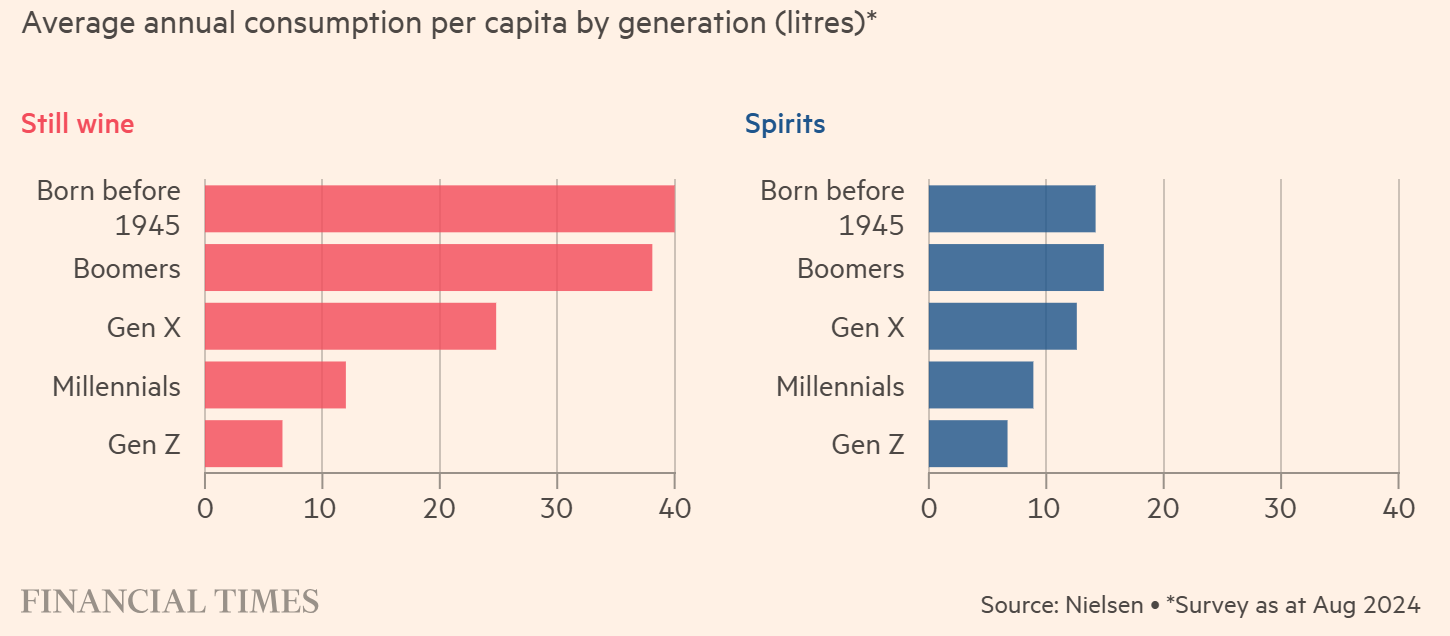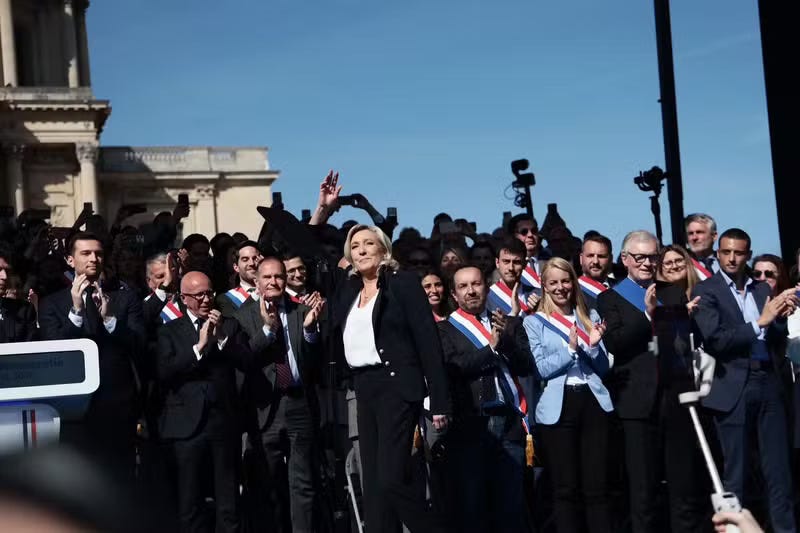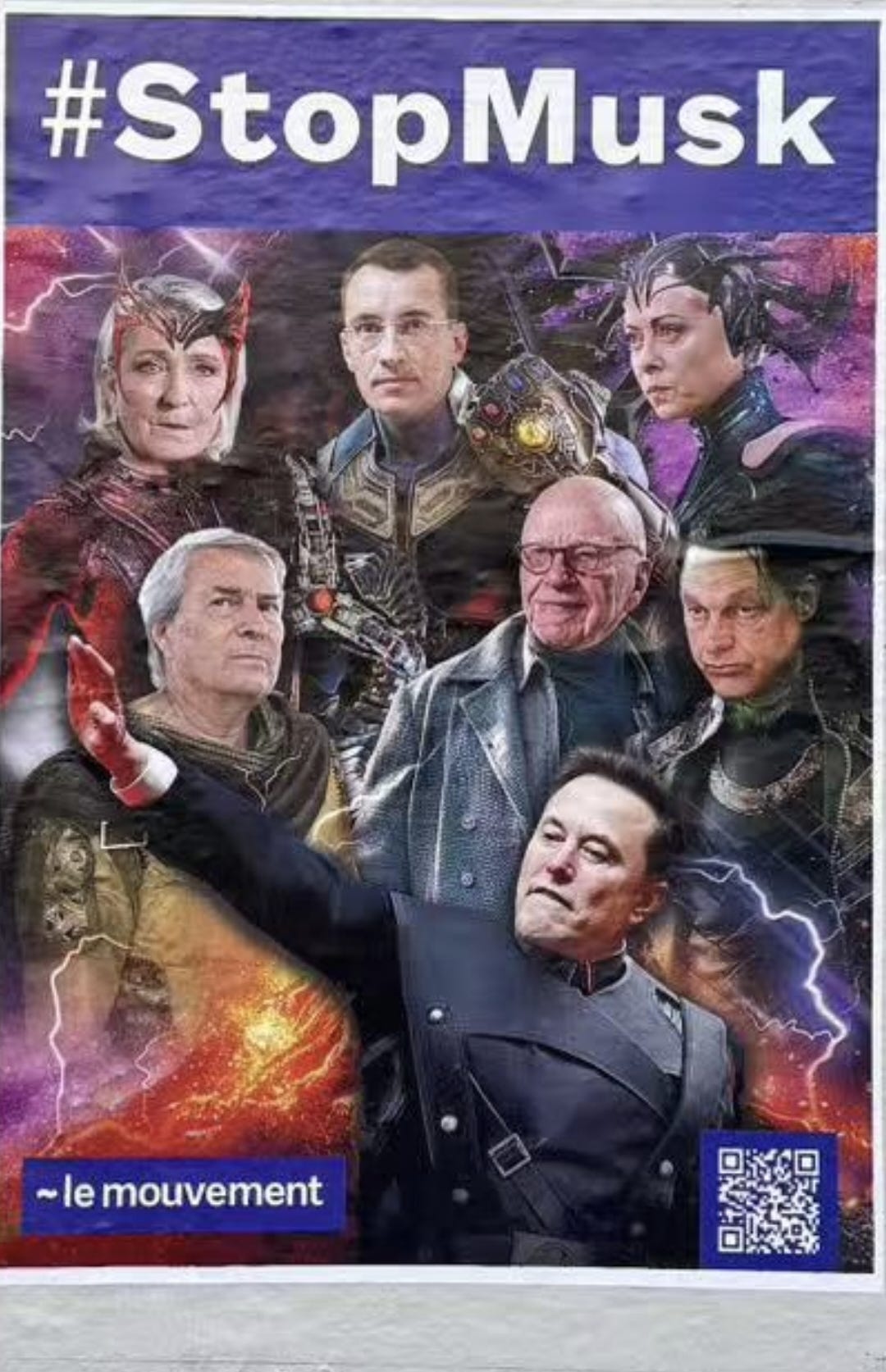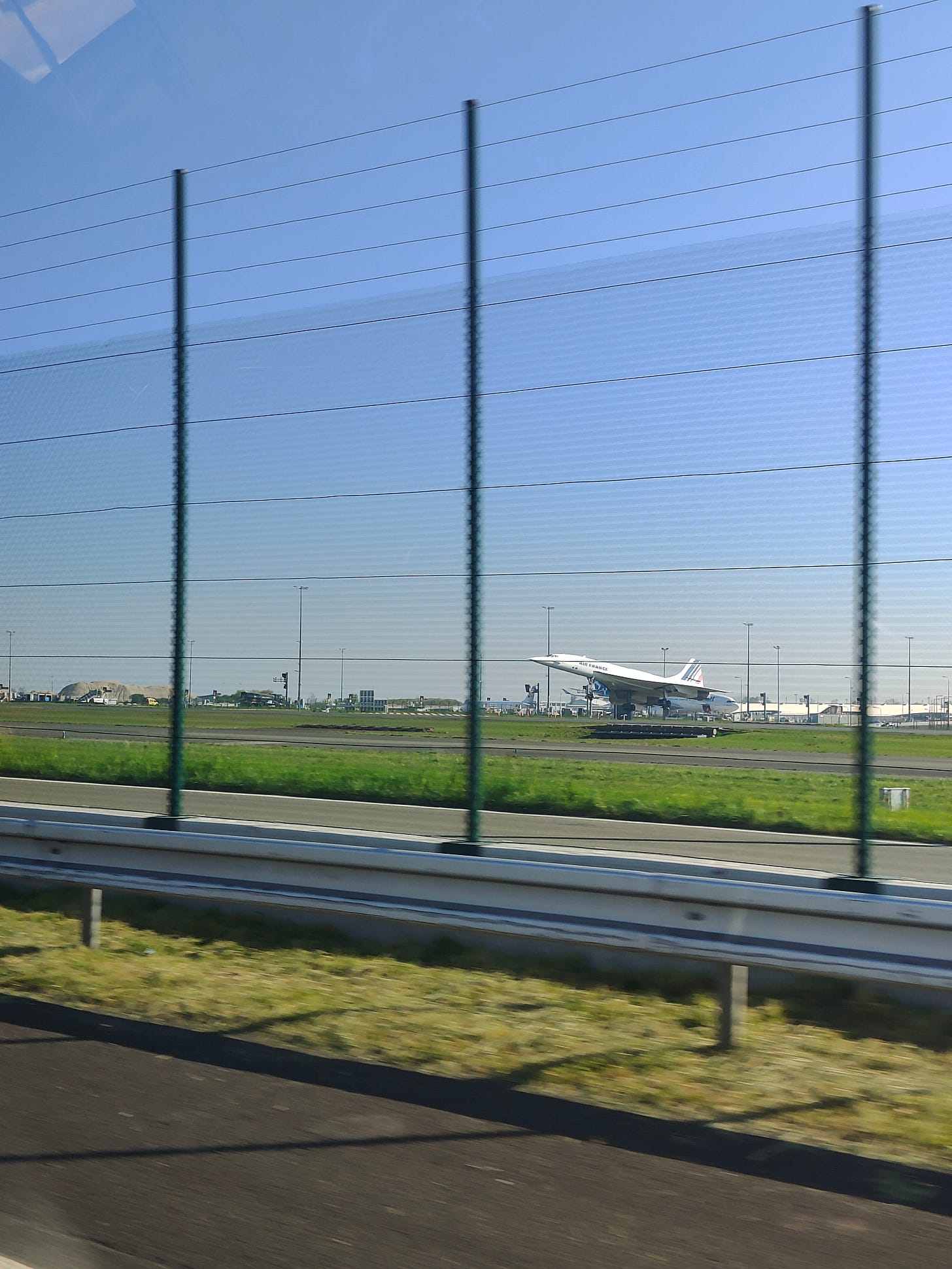Last week in Paris, while attending a conference, I chatted with several French friends about the ongoing tariff drama. Honestly, some of their perspectives were quite unexpected and surprising.
1. Why are more French people supporting new right-wing parties?
When I asked my French friends this question, their explanation was enlightening:
The urban-rural divide in France is truly significant. As foreign tourists, we might not notice this, since the situation in Paris is drastically different from other regions.
Rural French residents often feel "forgotten" by the Parisian political elite. Basic public services lag behind, public transportation is scarce, and finding doctors is difficult. "The right-wing performs especially well in very rural areas of France... because they feel forgotten by the current government."
Agricultural income is also declining. EU subsidies have decreased, and there's the possibility of cheap South American beef competing with local products, leaving local farmers worried about being pushed out. French farmers face a similar situation to "Wisconsin auto workers": both calling for protection of domestic industries.
Most heartbreaking is the decline of the wine industry. French red wine consumption has "decreased by 90%"! Young people aren't avoiding alcohol altogether, they just prefer beer or spirits. The government is even paying farmers to uproot their grapevines: "6,000 euros per hectare" just to reduce production.

Under these three pressures, rural areas naturally gravitate toward right-wing political figures like Marine Le Pen. She promises to protect traditional French rural values and resist globalization.
I think when people feel abandoned by traditional politics and their livelihoods are in crisis, turning to political forces that claim to understand their suffering seems quite natural.

2. Are French people gloating about the tariff war?
In a small Parisian café, as the wine flowed, my new French friend Bryn became increasingly candid. Trump's latest round of tariffs was scrolling across the TV news.
"See that?" Bryn smiled slightly, his expression somewhere between sympathy and 'I told you so.' "This isn't gloating, it's more a feeling of prophecy fulfilled."
He explained: "When Trump threatens Europe with tariffs, the US bond market immediately becomes unstable. Last week there was a massive sell-off in the US debt market, yields rose, and the dollar continued to fall... These are all signals of economic fragility."
After his third glass, his tone became more frank: "This is what we've been saying all along — The American economy has structural problems; it's too dependent on foreign capital. In his speech last year, Macron mentioned a figure: Europe has an annual surplus of 300 billion euros that isn't being used for domestic investment and reproduction, but instead flows to American financial markets. This is absurd!"
Bryn put down his glass and added: "You know, in Europe, France's position has always been different from Britain and Germany. Since WWII, the British and Germans have been enchanted by Americans, believing Americans are just like us — white, blue-eyed people of European descent, our relatives living across the ocean."
He excitedly counted on his fingers: "Our cultures are completely different — America is a multicultural immigrant nation, while each European country has thousands of years of historical accumulation; our social values differ — France has had a historical foundation of equality and fraternity since the French Revolution, while America champions individualism and extreme liberty; our industrial structures are also different — France relies on agriculture and cultural industries, while America sucks blood from the world through finance and technology."
Pointing to the lights of Paris outside, he said: "Unlike the British and Germans, we French have always remained vigilant. De Gaulle warned us long ago not to overly depend on America. Now with the rise of the MAGA movement, Britain and Germany are just starting to realize things aren't good, while we're simply saying: See, we told you so."

3. How does France defend its cultural identity? A scholar encountered in the park speaks his mind
The next morning, while walking in a park in eastern Paris, I met a history teacher out with his child. Born in France to immigrant parents, seeing my interest in French culture, he began chatting with me.
"As a second-generation immigrant, I have dual feelings about French cultural policies," Claude said. "For example, the language law being implemented next January requires applicants for residency to pass an advanced French test."
"Does this help with integration?" I asked.
"It's complicated," he said, pointing to a group of students learning about plants nearby. "We need a common language to communicate, but language is also a symbol of power and identity. France is worried about its language being eroded, just like Quebec was in the 80s."
He explained: "Previously in Paris, you rarely heard English. Now? English is everywhere, shop staff even switch to English before you finish speaking French. This makes many French people feel a cultural crisis."
In the morning light, the teacher's eyes revealed complex emotions: "As a history teacher, I understand the importance of protecting culture, but as a descendant of immigrants, I also understand the value of inclusivity."
The challenge France faces is: how to maintain core values while adapting to a globalized world?
As we parted, Claude left me with a thought-provoking statement: "Language disputes are just the surface. The deeper issue is how France can maintain its intellectual independence in the face of American and globalization impacts."
Watching the children learning in the botanical garden, I realized that from agricultural policies to language regulations, France has been seeking its own path: how to maintain independent French characteristics in an American-dominated world.

4. Looking to the future
Leaving Paris, while waiting for my flight at Charles de Gaulle Airport, I spotted the Concorde aircraft on display in the distance. This former French engineering marvel reminded me of a podcast about Europe's future that I'd listened to the night before.
The host analyzed: "Facing America's 'chaotic' tariff strategy, Europe must stand firm. Europe needs to be like the Concorde, pioneering its own path rather than always following America."
His viewpoint was clear: "Macron has already warned that Europe's over-reliance on America is dangerous." The future might require Europe to join forces with China, Japan, and others to form a multipolar world to balance American influence.
Gazing at the Concorde that once soared through the skies, I recalled his final words: "Europe needs a new 'Concorde moment' — uniting together, rebuilding its economic model, reducing dependence on the American financial system. Otherwise, we will forever be followers, not leaders."
This perfectly symbolizes France's core attitude toward current US-European relations — even when facing challenges, they persist in following their own independent path.





